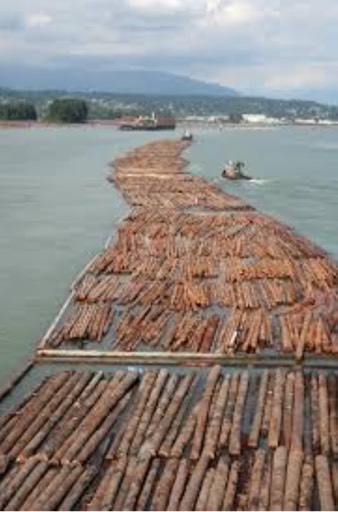Sign up for FlowVella
Sign up with FacebookAlready have an account? Sign in now
By registering you are agreeing to our
Terms of Service
Loading Flow

When the first sawmills were established, they were usually small water powered facilities located near the source of timber. Later, larger circular sawmills were developed in the lower course of a river, with the logs floated down to them by log drivers. In the broader, slower stream of a river, the logs might be bound together into timber rafts. In the smaller, wilder stretches of a river, rafts couldn't get through, so masses of individual logs were driven down the river like huge herds of cattle.
The log drive was one step in a larger process of lumber-making in remote places. In a location with snowy winters, the yearly process typically began in the fall when a small team of men hauled tools upstream into the timbered area, chopped out a clearing, and made a logging camp. In the winter when things froze down, a larger crew moved into the camp and proceeded to fell trees, cutting the trunks and hauling the logs with oxen or horses over iced trails to the riverbank. There the logs were decked onto "rollways." In the spring when snow melted and water levels rose, the logs were rolled into the river, and the drive commenced.
LUMBERJACKS IN TIMBERLAND
Life by the river: LOG DRIVINGhttps://en.m.wikipedia.org/wiki/Log_driving
Log driving is a means of moving logs (sawn tree trunks) from a forest to sawmills and pulp mills downstream using the current of a river. It was the main transportation method of the early logging industry in Europe and North America.
